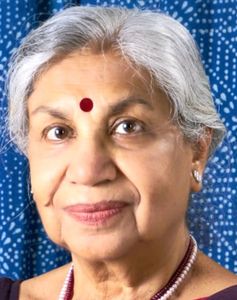THE INTERMINABLE CRISES that have beset Delhi seem to be going from bad to worse. After decades of being administered by the Central government through a chief commissioner and then a lieutenant governor, a 1991 constitutional amendment led to the Government of National Capital Territory of Delhi Act. It elevated Delhi administration to the status of a Union territory, with a legislature, a chief minister and a council of ministers, while keeping the lieutenant governor in charge of land, public order and police. The lieutenant governor also ensured that the elected governments did not come into conflict with the Central government.
Right from 1993, the time the first elected government took office in Delhi, there were disagreements, but even so, the atmosphere remained cordial. Two things were non-negotiable. Every chief minister maintained good relations with the Centre, even as the Central ministries remained receptive to Delhi’s needs as the capital of India. While every chief minister had his or her pet priorities, no one doubted the competence and commitment of the officers whose advice was generally listened to and acted upon.
For several years now, however, Delhi’s governance has slipped into a continually belligerent mode. One can blame several factors for the bedlam, but the unwillingness to display maturity has contributed the most. This is not the sort of governance that the citizens of the capital city deserve.
The BJP-led National Democratic Alliance has been in power at the Centre since 2014 and Delhi has been under the Aam Aadmi Party government since 2015. The difference in the pre-2015 years was that whichever political dispensation held power at the Centre, there was always a shared vision that the country’s capital must shine. That shared vision seems to have been replaced by another goal―to assert supremacy.
The longest serving chief minister of Delhi, Sheila Dikshit, was credited with several reforms which could not have been achieved without the support of the Central government. Dikshit had no power to make or amend laws made by Parliament, but, at each juncture, the road was cleared–even facilitated―by the Central government. Reforms like the privatisation of power, amendments to the Municipal Corporation Act to change the way property tax was levied and the new cooperative societies law were cases in point.
The Delhi Metro took off when the Atal Bihari Vajpayee government was at the Centre. The introduction of CNG in all public transport vehicles was another success story that reflected a healthy relationship between the two governments.
Dikshit used three strategies to have her way: maintaining good relations with whoever mattered in the Central government, giving officers a free hand to work and by staying close to the entire cross-section of the citizenry. The Central government remained under NDA for six years of her 15-year tenure, but, perhaps, she received maximum support during those years.
One of Dikshit’s successful initiatives was the citizen-government partnership called Bhagidari which accorded legitimacy to resident welfare associations. It became one of the finest examples of participatory democracy and received the United Nation’s good governance award. And ironically, around the same time, it was Arvind Kejriwal―then engaged with an NGO called Parivartan―who taught slum dwellers how to demand remedies for denial of ration, kerosene and electricity, by using Delhi’s Right to Information Act. Given the unending acrimony one is witnessing today, all these sound like a fairytale.
I have no idea how files are moving now between officers and ministers, and between the chief minister and the lieutenant governor. With officers holding triple charges and with the chief minister in jail, one wonders how work goes on. Postings and transfers are integral to the functioning of any organised bureaucracy. These were once managed effortlessly. Officers vied to get a Delhi posting. Today they look to escape. The setting up of the National Capital Civil Services Authority in 2023 by amending the NCT Act “to make recommendations to the LG on transfers, postings” is also not clearly understood. Its continuing non-workability has made the posting of officers chaotic, taking its toll on governance.
From a bureaucrat’s point of view, I cannot overemphasise that the All-India Services are governed by an Act of Parliament and must be used to help formulate policy, secure approvals within the processes laid down and be given the freedom to implement lawful orders, promptly. But to function efficiently, a structure and system must exist. There are examples within India like the Brihanmumbai Municipal Corporation which did amazingly well during the Covid-19 pandemic because there was a structure in place. But unfortunately, with the prevailing situation, it seems unthinkable for Delhi, especially since the genie of full statehood has been let loose.
Another solution might be to relocate the capital and leave Delhi to be run just like any another state, which is seen to have reduced conflict in some cases, like Washington, DC and Canberra.
For now, the citizens of Delhi have become inured to the ongoing political and legal battles and blame games. With the chief minister being in jail for months, it is unclear how much the governance is suffering. In Jharkhand, the chief minister resigned before his arrest and was reappointed once he was out on bail. When a government servant is arrested, he is deemed to be under suspension and becomes functus officio (an officer or agency whose mandate has expired). In the case of the Delhi chief minister, whatever be the merits of any legal or technical grounds which might not require resignation, when the chief minister is unable to perform his lawful functions, on moral grounds, he must appoint a successor.
―As told to Mohit Sharma.
Shailaja Chandra is former chief secretary, Delhi.



